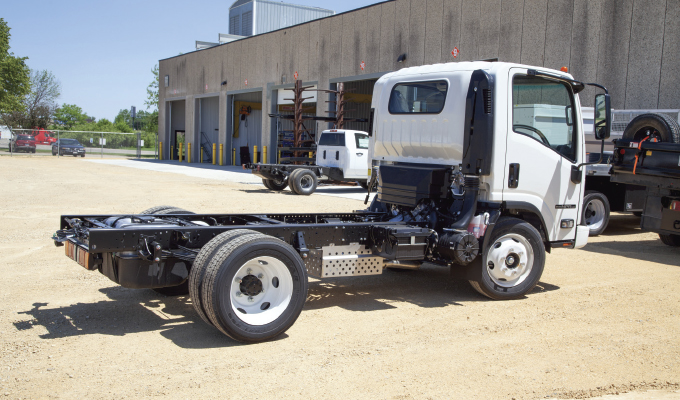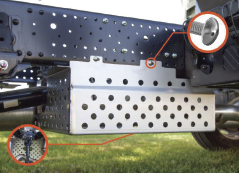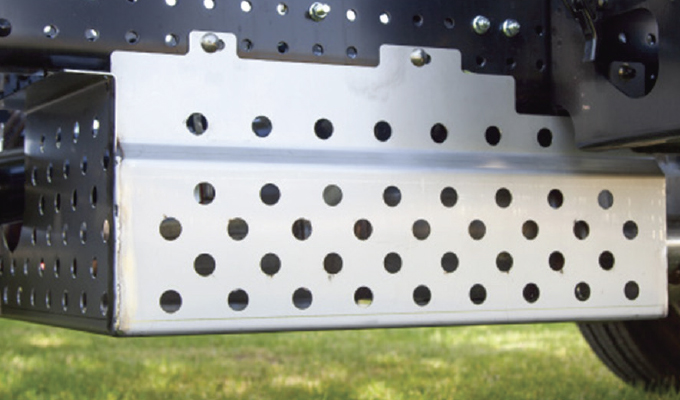For the past several years, catalytic converter theft has dramatically increased. If you haven’t already had yours stolen, there’s a great chance you know someone who has. This is a growing concern for vehicle owners for several reasons: They can be incredibly expensive to replace and are astonishingly simple to steal. In fact, the whole process can be completed in fewer than two minutes.
Catalytic converters are designed to convert pollutants into less-toxic gases and were designed in the 1970s to comply with the Environmental Protection Agency’s regulation of exhaust emissions. The units are created using valuable metals, including platinum, palladium, and rhodium. These three metals are Platinum Group Metals (PGM) and can be extracted for a low risk/high reward payoff.
According to the National Insurance Crime Bureau (NICB), between 2019 and 2020, catalytic converter theft claims increased 325% in a single year with around 14,500 thefts reported. The following year, thefts jumped up again, with more than 50,000 catalytic converters stolen off parked vehicles, according to Car and Driver. NICB President David Glawe says that theft has increased even more during the COVID-19 pandemic as supply chain challenges grew. “As the value of the precious metals contained within the catalytic converters continues to increase, so do the number of thefts of these devices,” Glawe said in a statement. “There is a clear connection between times of crisis, limited resources, and disruption of the supply chain that drives investors towards these precious metals.”
CAT CONVERTER VALUE
The Platinum Group Metals in catalytic converters are incredibly valuable, even in small amounts. As of December 2022, rhodium is worth $13,000 an ounce, palladium is close to $2,000 an ounce, and platinum is worth around $1,000 an ounce. These prices are incredibly enticing, even though there are only a small amount of PGMs per catalytic converter. A thief would have to steal 14-15 catalytic converters to claim 1 ounce of each metal—a nice paycheck for what could take less than an hour of work.
Supply and demand challenges make these metals even more valuable. If your catalytic converter is stolen, it could cost thousands of dollars to replace. Therefore, an ounce of prevention is worth a pound of cure.
FINDING SOLUTIONS
Monroe Truck Equipment’s mTEC products were created to address its customer’s core concerns. Monroe’s latest mTEC product is the Cat Cage, a 14-gauge stainless steel box that “cages” the catalytic converter, keeping it safe from theft.
The Cat Cage features tamper-resistant fasteners and can be easily installed to the frame using OEM attachment points. It’s a lightweight design that can effectively deter catalytic converter theft, while still offering straightforward bottom access for greasing the driveshaft.
Right now, the model is available for 2012 or newer Isuzu NPR and NPR-HD gas engine chassis, 2022-current Isuzu NQR and PRR gas engine chassis, Chevrolet W3500 & W4500 gas engine chassis, as well as 2022 to current Ford F350/F450/F550/F600 chassis cabs with a 7.3-L gas engine. The brand is working on expanding the design to accommodate more chassis.

CAT CAGE BENEFITS
There are many benefits to the Cat Cages. It’s secure because the Cat Cage bolts securely to frame rails with tamper-resistant fasteners, surrounding all sides of your catalytic converter, deterring theft of this costly component and letting you rest easier when your truck isn’t within sight.
It’s accessible because its sturdy but lightweight 14-gauge stainless steel is designed with bottom access so owners can easily grease the slip joint on the drive shaft without hassle or disassembly. It’s profitable because it keeps vehicles profitably in service by avoiding weeks of repair from theft and eliminates replacement costs of catalytic converters.
ADDITIONAL MEASURES
Not only does the Cat Cage improve security, allow for accessibility, and help keep operations profitable, the product includes additional features, such as etching and painting.

Some municipalities across the country are collaborating with local businesses and the police force to offer free or inexpensive etching services. Users can etch either their license plate number or last six to eight digits of the car’s VIN onto the converter. This deters theft because the parts can be traced back to a real person, increasing the risk of getting caught or punished.
Some automotive businesses have offered to paint their customer’s catalytic converter in an attempt to deter thefts, as auto part stores and scrapyards aren’t supposed to be able to buy marked parts.
THEFT CRACKDOWN
On November 2, 2022, the United States Department of Justice announced a bust in a large catalytic converter theft ring. A collaboration between federal, state, and local law enforcement from across the nation executed a coordinated takedown of the leaders and associates of a national network of thieves, dealers, and processors for their involvement in stolen catalytic converters being sold to a metal refinery for tens of millions of dollars.
Arrests, searches, and seizures took place in California, Oklahoma, Wyoming, Minnesota, New Jersey, New York, Nevada, North Carolina, and Virginia. In total, 21 individuals in five states have been arrested and/or charged for their roles in the conspiracy.
“This national network of criminals hurt victims across the country,” says FBI Director Christopher Wray. “They made hundreds of millions of dollars in the process—on the backs of thousands of innocent car owners. Today’s charges showcase how the FBI and its partners act together to stop crimes that hurt all too many Americans.”
Additionally, legislators across the country have introduced bills to curb the rate of catalytic converter thefts. According to Bill Track 50, “over the last decade almost 350 bills have been introduced that aim to address some part of the catalytic converter craze. This year alone, 84 bills have been proposed in 29 states. Minnesota and Missouri each proposed 12 bills.”
In November, federal legislators brought the fight to a nation-wide level. US Senators Ron Wyden and Amy Klobuchar (D-Minn) introduced Senate legislation to combat the rise in catalytic converter thefts across the country. Representative Jim Baird (R-Ind) leads the efforts with affiliated legislation in the House of Representatives.
The bill is called the Preventing Auto Recycling Theft (PART) Act. It works to make it easier for law enforcement to solve thefts and punish those who steal catalytic converters.
WITH YOU IN MIND
Monroe Truck’s mTEC team is dedicated to engineering creative solutions for its customers’ most pressing needs. Along with the Cat Cage, the Monroe mTEC team created the StepMate System and SmoothRide systems.
ABOUT THE AUTHOR
Jim Smith is director of sales of the Commercial Division at Monroe Truck Equipment. He has spent over 30 years developing Monroe Truck Equipment into one of the nation’s leading truck equipment and trailer manufacturers and upfitters. Jim drives the development of true partnerships with Monroe customers and provides clarity for the sales team and assists them in providing unrivaled expertise and best-in-class customer support. Find out more, visit www.monroetruck.com.




